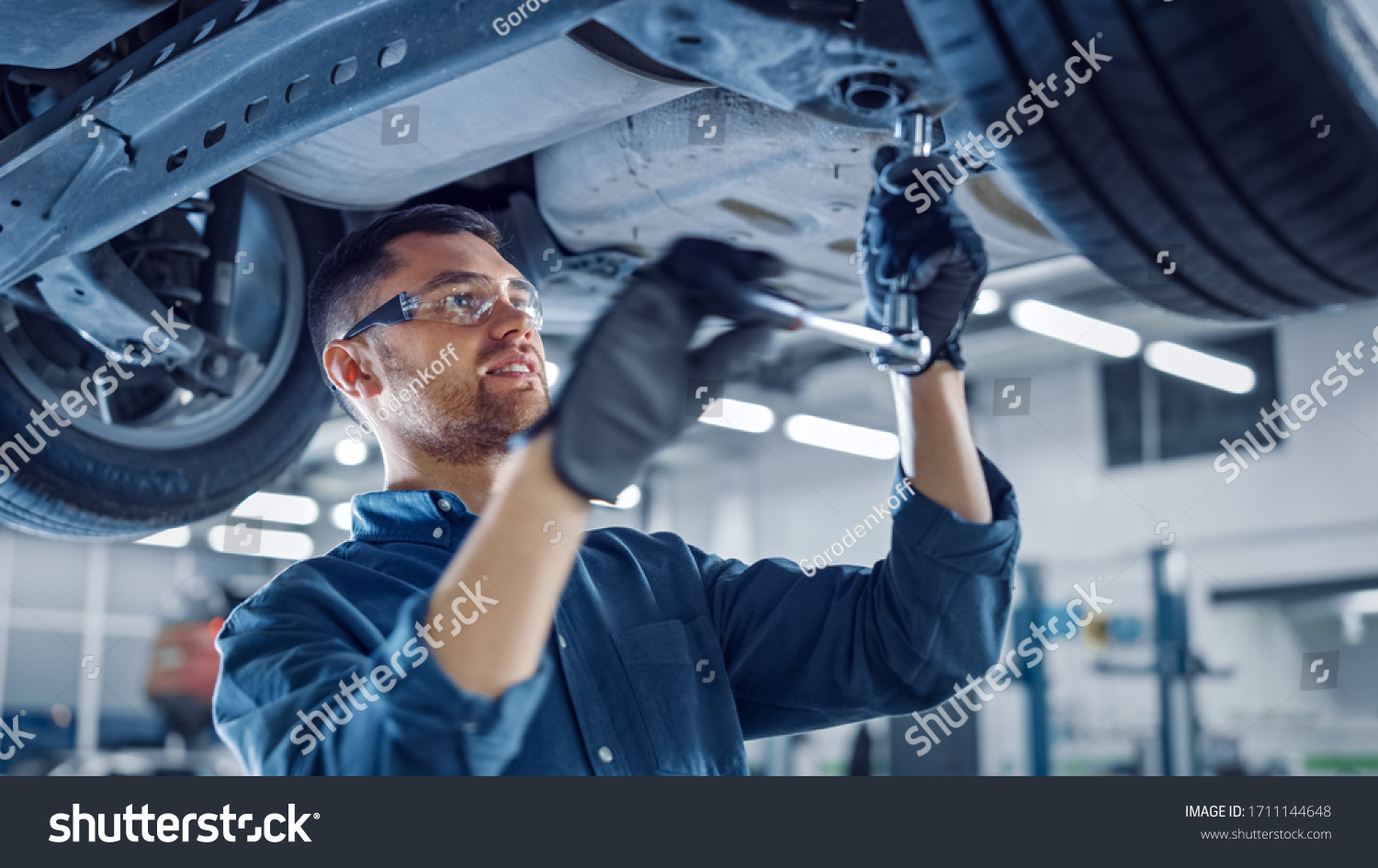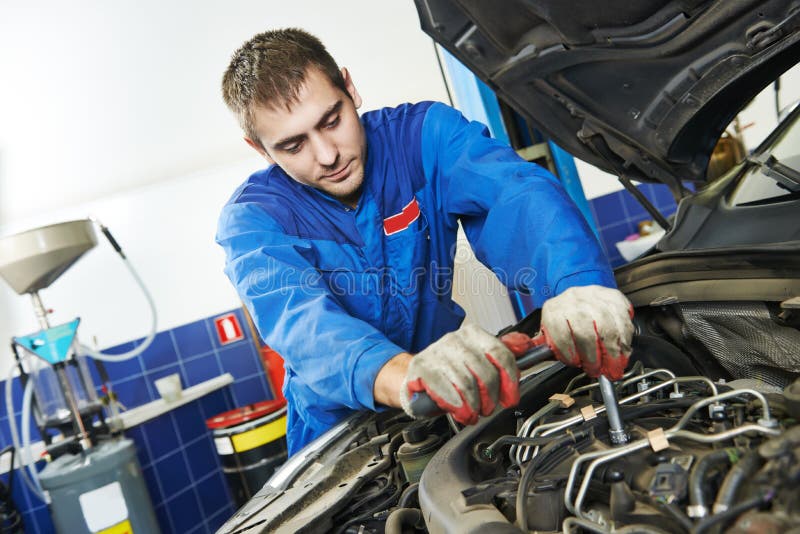Mechanic Trucks For Sale Near Me: Your Comprehensive Guide to Mobile Service Solutions pickup.truckstrend.com
In today’s fast-paced world, where efficiency and convenience reign supreme, the ability to bring services directly to the customer or job site has become an invaluable asset for many businesses. For mechanics, this capability is embodied by the versatile and indispensable "mechanic truck." More than just a vehicle, a mechanic truck—also known as a service truck, utility truck, or field service vehicle—is a mobile workshop equipped with the tools, machinery, and storage necessary to perform repairs, maintenance, and installations on location.
Whether you’re a seasoned mobile mechanic, a growing construction company, an agricultural operation, or a fleet manager, finding the right mechanic truck for sale near you can revolutionize your operations, boost productivity, and significantly expand your service reach. This comprehensive guide will delve into every aspect of these essential vehicles, helping you navigate the market and make an informed decision that drives your business forward.
Mechanic Trucks For Sale Near Me: Your Comprehensive Guide to Mobile Service Solutions
What Exactly is a Mechanic Truck? The Mobile Workshop Defined
At its core, a mechanic truck is a specialized vehicle designed to transport and power a wide array of tools and equipment required for on-site service and repair. While the base vehicle is often a heavy-duty pickup truck chassis or a commercial truck chassis, it’s the custom-built utility body that defines its function.
Key features and components commonly found on a mechanic truck include:
- Utility Body: This is the heart of the truck, featuring multiple lockable compartments with shelving, drawers, and ample storage space for tools, parts, and supplies. These bodies are typically made from steel or aluminum for durability.
- Crane (or Boom): Many mechanic trucks are equipped with a hydraulic crane, ranging from small, articulating cranes for lifting heavy components (like engines or transmissions) to larger, telescopic cranes for heavy equipment repair or construction tasks.
- Air Compressor: An essential component for powering pneumatic tools (impact wrenches, air hammers, grinders) and inflating tires. Compressors can be piston-driven or rotary screw, powered by the truck’s engine (PTO) or a separate engine.
- Welder/Generator: Often integrated as a single unit, these provide power for arc welding, plasma cutting, and running various electrical tools and lights on site.
- Workbench and Vise: A sturdy workbench area, often with a built-in vise, provides a stable surface for minor fabrication or repair work.
- Oil and Fluid Storage/Dispensers: For lube trucks or those performing routine maintenance, compartments for fresh oil, waste oil, grease, and other fluids are common, often with pumping systems.
- Lighting: Exterior work lights are crucial for working in low-light conditions or at night.
- Safety Features: Cones, warning lights, fire extinguishers, and first-aid kits are standard.


These integrated features transform a simple truck into a powerful, self-sufficient mobile repair shop, capable of tackling a wide range of mechanical challenges wherever they may arise.
Why Buy a Mechanic Truck? The Benefits of Mobile Service
Investing in a mechanic truck is more than just acquiring a vehicle; it’s an investment in operational efficiency and business growth. The advantages of mobile service are numerous and compelling:
- Increased Efficiency and Reduced Downtime: Instead of transporting heavy machinery or disabled vehicles to a repair shop, the mechanic truck brings the shop to the equipment. This drastically reduces downtime for your assets or your clients’ assets, getting them back to work faster.
- Expanded Service Area and Customer Reach: A mobile service unit allows you to serve a wider geographic area, reaching customers or job sites that might be inconvenient or impossible for a traditional brick-and-mortar shop.
- Enhanced Customer Convenience and Satisfaction: Customers appreciate the convenience of on-site service. For businesses, this means less disruption to their operations. This convenience often translates into higher customer satisfaction and loyalty.
- New Revenue Streams and Premium Services: Mobile service often commands a premium rate, as you’re providing a specialized, convenient solution. This opens up new revenue opportunities for your business.
- Versatility Across Industries: Mechanic trucks are not limited to just automotive repair. They are indispensable in construction, mining, agriculture, utilities, heavy equipment rental, landscaping, municipal services, and roadside assistance.
- Professional Image and Credibility: A well-equipped and maintained mechanic truck projects a highly professional image, signaling to clients that you are serious about your work and capable of handling complex tasks on-site.

Types of Mechanic Trucks: Finding Your Perfect Match
Mechanic trucks come in various sizes and configurations, designed to meet different operational demands and budgets. Understanding the types available will help you narrow down your search for "mechanic trucks for sale near me."
-
Light-Duty Mechanic Trucks (Pickup Truck Based):
- Description: Typically built on a ¾-ton or 1-ton pickup truck chassis (e.g., Ford F-250/350, Ram 2500/3500, Chevy Silverado 2500/3500).
- Features: Smaller utility bodies, often with an air compressor, generator, and sometimes a small crane (under 2,000 lbs capacity).
- Ideal For: Mobile automotive mechanics, light equipment repair, roadside assistance, and smaller contractors needing basic tools on site.
- Pros: More maneuverable, lower operating costs, often doesn’t require a CDL.
- Cons: Limited carrying capacity, smaller crane capacity.
-
Medium-Duty Mechanic Trucks (Chassis Cab Based):
- Description: Built on a commercial chassis cab (e.g., Ford F-450/550, Ram 4500/5500, Isuzu NPR, Freightliner M2).
- Features: Larger utility bodies, more extensive tool storage, integrated air compressors, welders/generators, and medium-capacity cranes (2,000-8,000 lbs).
- Ideal For: General heavy equipment repair, construction companies, fleet maintenance, and agricultural operations.
- Pros: Excellent balance of capacity, features, and maneuverability.
- Cons: Higher purchase price and operating costs than light-duty, may require a CDL depending on GVWR.
-
Heavy-Duty Mechanic Trucks (Commercial Chassis):
- Description: Built on robust commercial truck chassis (e.g., Peterbilt, Kenworth, Freightliner, Mack).
- Features: Very large utility bodies, high-capacity cranes (8,000 lbs+), powerful air compressors, industrial-grade welders, and extensive customization options.
- Ideal For: Mining operations, oil and gas, large-scale construction, heavy machinery dealerships, and large fleet repair.
- Pros: Maximum capacity and capability for the toughest jobs.
- Cons: Very high purchase and operating costs, requires a CDL, limited maneuverability.
-
Specialized Mechanic Trucks:
- Lube Trucks: Dedicated to on-site fluid changes and preventative maintenance.
- Tire Service Trucks: Equipped for heavy-duty tire repair and replacement.
- Welding Trucks: Heavily focused on mobile welding and fabrication.
Where to Find Mechanic Trucks For Sale Near Me: Your Search Strategy
The phrase "near me" is crucial when searching for a mechanic truck, as it implies a preference for local availability, easier inspections, and potentially lower transportation costs. Here’s where to look:
-
Online Commercial Vehicle Marketplaces:
- TruckPaper.com: A leading online marketplace for commercial trucks and trailers, including a vast selection of service trucks.
- CommercialTruckTrader.com: Another popular platform with a wide range of new and used commercial vehicles.
- My Little Salesman: Focuses on heavy equipment and commercial trucks, often has specialized service trucks.
- IronPlanet & Ritchie Bros. Auctioneers: Major online auction sites for used heavy equipment and commercial vehicles. Excellent for finding ex-fleet or government surplus trucks.
-
General Classifieds and Local Marketplaces:
- Craigslist & Facebook Marketplace: While you need to exercise caution and thoroughly vet sellers, these platforms can sometimes reveal local gems from private sellers or small businesses. Use specific search terms like "service truck," "utility truck," "crane truck," or "mechanic truck."
- Local Classifieds & Newspapers: Less common now, but some older or smaller businesses still advertise here.
-
Commercial Truck Dealerships:
- New Truck Dealers: Many new commercial truck dealerships (e.g., Ford Commercial, Ram Commercial, Isuzu, Freightliner) sell chassis cabs that are then upfitted by third-party body manufacturers. They might also have pre-built or custom-ordered units.
- Used Commercial Truck Dealerships: These specialize in used trucks of all types, including a dedicated section for service and utility vehicles. They often have inventory from fleet trade-ins.
-
Government and Fleet Auctions:
- GovDeals.com: Sells surplus equipment from government agencies, often including well-maintained service trucks.
- Local Municipal Auctions: Check with your city, county, or state government for auction schedules.
- Utility Company Auctions: Large utility companies frequently cycle out their service vehicles.
-
Direct from Owners/Word of Mouth:
- Local Businesses: Keep an eye out for service companies that might be upgrading their fleet. A direct inquiry could lead to a sale.
- Networking: Talk to other mechanics, contractors, or business owners. They might know someone selling a truck or can recommend a reliable source.
Key Considerations Before Buying: Making an Informed Decision
Purchasing a mechanic truck is a significant investment. Careful consideration of these factors will help ensure you get a vehicle that meets your needs and budget.
- Budget (New vs. Used):
- New: Offers warranties, latest technology, and customization, but at a premium price. A new, fully upfitted medium-duty mechanic truck can range from $80,000 to over $200,000.
- Used: Significantly more affordable, allowing for more features within a given budget. However, requires thorough inspection and due diligence. Prices can range from $15,000 for an older, basic model to $70,000+ for a well-maintained, newer used truck.
- Condition of the Vehicle (Especially for Used):
- Chassis: Check for rust (especially frame rails and body mounts), fluid leaks, tire wear, brake condition, and suspension integrity.
- Engine & Transmission: Get detailed maintenance records. A pre-purchase inspection by a trusted mechanic is non-negotiable. Look for unusual noises, smoke, or shifting issues during a test drive.
- Utility Body: Inspect for structural damage, rust in compartments, latch functionality, and door seals. Ensure all lights work.
- Integrated Equipment (Crane, Air Compressor, Welder/Generator):
- Crane: Test full range of motion, look for hydraulic leaks, check boom extension and retraction, and verify load capacity.
- Air Compressor: Check for leaks, proper pressure build-up, and consistent air supply.
- Welder/Generator: Test power output and welding capabilities.
- Required Equipment and Capacity:
- Crane Capacity: What’s the heaviest component you’ll need to lift? Ensure the crane’s capacity meets or exceeds your typical needs.
- Air Compressor CFM: Does it provide enough airflow for your most demanding pneumatic tools?
- Generator Wattage: Is it sufficient to power all your electrical tools simultaneously?
- Storage Space: Do the compartments offer enough space and organization for your specific tools and parts?
- Vehicle Class and GVWR (Gross Vehicle Weight Rating): Understand the truck’s GVWR, as this determines licensing requirements (e.g., whether a Commercial Driver’s License – CDL – is needed). For most light and medium-duty trucks under 26,001 lbs, a standard driver’s license suffices.
- Maintenance Records: For used trucks, comprehensive maintenance records are gold. They provide insights into the vehicle’s history, major repairs, and how well it was cared for.
- Legal and Regulatory Compliance: Be aware of DOT (Department of Transportation) regulations if you’ll be operating commercially across state lines, including weight limits and inspections.
The Buying Process: Tips for a Smooth Transaction
Once you’ve identified potential "mechanic trucks for sale near me," follow these steps for a successful purchase:
- Define Your Needs Clearly: Before you even start looking, list out what you absolutely need in a mechanic truck (crane capacity, air compressor size, specific storage, budget). This will prevent impulse buys and keep your search focused.
- Set a Realistic Budget: Include not just the purchase price, but also potential immediate repairs, registration, insurance, and any necessary upfitting or additional tools.
- Thorough Research: Compare multiple trucks. Don’t jump on the first one you see. Look at different makes, models, and years. Read reviews if available for specific chassis or body manufacturers.
- Professional Inspection is Mandatory: For any used mechanic truck, hire an independent, qualified mechanic specializing in commercial vehicles and hydraulic systems to conduct a pre-purchase inspection. This can uncover hidden issues that save you thousands down the line.
- Test Drive: Drive the truck empty and, if possible, with some weight. Pay attention to engine performance, transmission shifting, brakes, steering, and overall handling. Test all the integrated equipment – the crane, air compressor, welder, and lights.
- Negotiate: Always negotiate the price. Be polite but firm, and back up your offer with data from your research and inspection findings.
- Complete Paperwork Carefully: Ensure you receive a clear title, a bill of sale, and any available maintenance records. Verify VIN numbers match all documents.
Mechanic Trucks For Sale Near Me: Estimated Price Table
Prices for mechanic trucks vary significantly based on age, mileage, condition, make, model, and the type/quality of integrated equipment. The table below provides estimated ranges for general guidance. Always factor in potential additional costs like taxes, registration, insurance, and immediate repairs.
| Type/Category | Typical Age Range (Used) | Key Features | Estimated Price Range (Used) | Estimated Price Range (New/Upfitted) |
|---|---|---|---|---|
| Light-Duty (Pickup Based) | 5-15+ years | Basic utility body, small air compressor/generator, small crane (<2k lbs) | $15,000 – $45,000 | $80,000 – $120,000 |
| Medium-Duty (Chassis Cab) | 3-12 years | Full utility body, integrated air/welder/gen, medium crane (2-8k lbs) | $35,000 – $75,000 | $120,000 – $180,000 |
| Heavy-Duty (Commercial Chassis) | 5-15+ years | Large utility body, industrial air/welder/gen, heavy crane (>8k lbs) | $60,000 – $150,000+ | $180,000 – $300,000+ |
| Specialized (e.g., Lube, Tire) | 5-15+ years | Specific tanks, pumps, tire changers, specialized tools | $40,000 – $100,000+ | $150,000 – $250,000+ |
Note: These are broad estimates. A low-mileage, meticulously maintained used truck might fetch prices closer to new, while a high-mileage, older unit will be at the lower end.
Frequently Asked Questions (FAQ)
Q1: How much does a mechanic truck cost?
A1: As shown in the table above, costs vary widely. Used light-duty trucks can start from $15,000, while new, fully equipped heavy-duty models can exceed $300,000. The price depends on the vehicle’s age, condition, mileage, make, model, and the specific integrated equipment (crane, compressor, welder, etc.).
Q2: Can I convert a regular pickup truck into a mechanic truck?
A2: Yes, to a degree. You can add a utility body to a suitable pickup chassis. However, adding heavy equipment like a large crane, powerful air compressor, or heavy-duty welder might exceed the truck’s Gross Vehicle Weight Rating (GVWR) or require significant chassis reinforcement, which can be costly and complex. It’s often more efficient and safer to start with a truck designed for commercial upfitting.
Q3: What’s the most important feature to look for in a used mechanic truck?
A3: While all components are important, the reliability of the base vehicle (engine, transmission, chassis) and the functionality of the primary integrated equipment (crane, air compressor) are paramount. A non-functional crane or a failing compressor can render the truck useless for its primary purpose. Always prioritize a thorough pre-purchase inspection.
Q4: Do I need a CDL (Commercial Driver’s License) to drive a mechanic truck?
A4: It depends on the truck’s Gross Vehicle Weight Rating (GVWR). In the U.S., a CDL is generally required for vehicles with a GVWR of 26,001 lbs or more, or if towing a trailer that puts the combined weight over that limit. Most light-duty and many medium-duty mechanic trucks fall below this threshold and can be driven with a standard driver’s license. Always check local and federal regulations.
Q5: Is buying a used mechanic truck risky?
A5: Buying used always carries some risk, but it can be significantly mitigated. The key is a comprehensive pre-purchase inspection by a qualified mechanic, reviewing maintenance records, and thoroughly testing all systems. A well-maintained used truck can offer excellent value and reliability.
Conclusion: Driving Your Business Forward with the Right Mechanic Truck
The search for "mechanic trucks for sale near me" is a quest for efficiency, expanded capability, and ultimately, business growth. A well-chosen mechanic truck is more than just transportation; it’s a mobile command center that brings your expertise and tools directly to where they’re needed most.
By understanding the types of trucks available, knowing where to search, and diligently considering key factors like budget, condition, and required equipment, you can navigate the market with confidence. Remember, a thorough inspection and clear understanding of your operational needs are your best allies in making this significant investment. With the right mechanic truck, you’re not just buying a vehicle; you’re investing in a powerful asset that will drive your mobile service operations to new heights of productivity and profitability.



